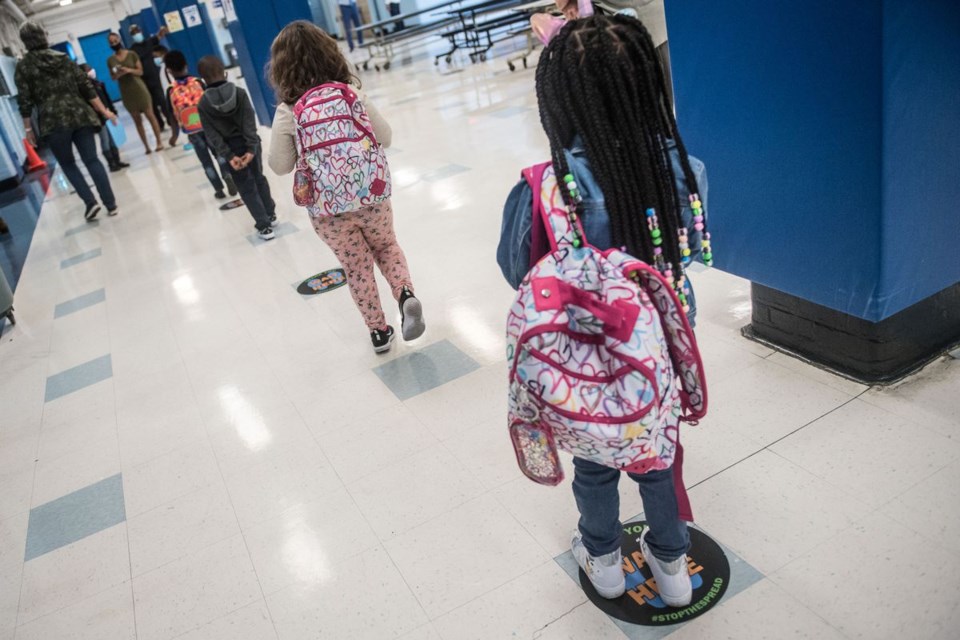Quarantine, remote learning, COVID, struggles hear students speak!
Ever since that fateful March last year, the vast majority of students in New York City have been in remote learning, with a brief period of blended learning for those that opted for it.
Nearly two semesters (the equivalent of an academic year) into remote learning, I talked with several New York City high schoolers to understand how quarantine, remote learning and COVID-19 have influenced their lives, well-being and education.
Remote Learning Induces Learning Slide
From freshmen to seniors, the wrath of remote learning didn't leave anyone unscathed. Unmotivated, stressed and tedious, were the most common adjectives interviewees associated with remote learning.
Of the four students interviewed, all saw a negative change in their academic performance. For Alice, a freshman, this drop was compounded with a need to adjust to high school workload. "On a day to day basis, the subjects feel harder to learn, especially math," Alice said. This adjustment has not been an easy one during the pandemic, especially when some students are in blended learning while others are not, it makes it harder for every student to be on the same page.
The confinement of staying at home can exacerbate a repetitive schedule. "I often don't have the same energy towards work as I did when we physically went to school," Kelly, a current senior, said.
Though school schedules are always repetitive, being in school has created a routine for her -- one that she's familiar with. Now, being in a further constrained space, the same routine feels unbearable. For Kelly, her discomfort and lack of energy has dimmed her motivation to complete her work, which has only made remote learning harder.
A, who prefers to remain anonymous, and Jennifer, a current junior, reinforce these feelings. A said the material learnt in class was harder to retain and Jennifer added the lack of classroom engagement augmented this problem. "Some of the content doesn't make any sense, especially when the teacher doesn't really know how to exactly explain what we need help on," she said.
All these factors combine to make remote learning a much more isolated, confusing and stressful experience for students.
Mental Health
One major concern as students progress with remote learning is their mental wellbeing. Alice, Kelly, Jennifer and A all acknowledged quarantine and remote learning had an averse impact on their mental health. "Honestly speaking, I don't have the time to take care of my mental health," said A and Alice. Both acknowledged their lives had been much busier with an increase in family and academic responsibilities.
For Kelly and Jennifer, spending time for themselves had been extremely helpful. Kelly said she occasionally spent time playing games with friends, talking to family and cooking. Jennifer found listening to music and journaling immensely relieving.
While A believed a virtual space was provided in her school, others thought otherwise. Kelly said she believed her school had done little to support students mentally. In the classroom, she noted there could also be more understanding. "I don't blame the teachers necessarily, but I do wish they paid attention to their students more and how they respond to their class."
At Jennifer's school, counseling and support services are present. But students don't feel safe confiding, she said. "Even if it's as simple as 'I'm stressed,' they call home," she noted. While students may want a space to confide their troubles, the tendency to contact parents caused many to shy away from this resource due to a lack of confidentiality.
Some silver linings
Of all the distress, there seemed to be one silver lining. Kelly noted that she now had a better sleep schedule: from her previous 4 to 6 hours to a steady 8-hour; Jennifer noted that in a weird way, quarantine had motivated her to better her time management and defeat the challenges of remote learning. A appreciated the convenience of the virtual space in cutting the commute time to and from school, while Alice remarked she now had greater flexibility in her schedule and more freedom over her time.
But, for the most part, the interviewee's expressed an overall negative impact of quarantine on their life.
From augmenting struggles academically, to canceled school events to exacerbating pandemic fatigue, and from the blurring of school and personal life to a decreased ability to focus, most found it an unpleasant experience.
Many hoped the status quo would be different the next academic year. For Jennifer, "even through all the struggles and mishaps," she felt proud of herself and others for remaining strong and pulling through.
In the face of a difficult educational condition, the teens shared a desire to "hang in there."




